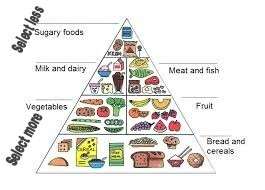Vitamins, Minerals & Food Value
Vitamins and minerals are the compounds necessary for the healthy functioning of our bodies. We need vitamins and minerals in our diets, to help us grow, to see properly, to make bones, muscles, skin and organs, as well as to help to work for proper immune system. It is very important to take proper Vitamins, Minerals & Food Value.
What is a nutrient?
There are six nutrients essential for your body: vitamins, minerals, water, carbohydrates, protein, and fat. Each of the six nutrients plays a specific and crucial role in the body and must be obtained from food.
Vitamins
Vitamins fall into two categories: fat soluble and water soluble. The fat-soluble vitamins — A, D, E, and K — dissolve in fat and can be stored in your body. The water-soluble vitamins — C and the B-complex vitamins (such as vitamins B6, B12, niacin, riboflavin, and folate) — need to dissolve in water before your body can absorb them.
Water-soluble vitamins:
B1 or Thiamin
What it does for our bodies:
• Helps release energy from carbohydrates
• Is needed for proper working of the heart, digestive and nervous systems
• Important for growth etc
Food sources: Pork, liver, eggs, oatmeal, brown rice, vegetables, potatoes
Deficiency disease: Beriberi, Wernicke-Korsakoff syndrome
B2 or Riboflavin
What it does for our bodies:
• Important for growth and repair of tissues, supports antioxidant function, especially the skin and eyes
• Promotes energy production from food etc
Food sources: Dairy products, bananas, popcorn, green beans, asparagus, Almonds, Mushrooms
Deficiency disease: Ariboflavinosis, Glossitis, Angular stomatitis
B3 or Niacin or Nicotinamide
What it does for our bodies:
• Important for growth, it can also lower the risk of a second heart attack.
• Helps control cholesterol levels etc.
Food sources: Meat, fish, eggs, many vegetables, mushrooms, tree nuts
Deficiency disease: Pellagra
B5 or Pantothenic acid
What it does for our bodies:
- Essential for the production of red blood cells
- Deal with stress, B5 is often referred to as the “anti-stress” vitamin etc.
Food sources: Meat, broccoli, avocados,whole-grain cereals, sunflower seeds etc
Deficiency disease: Paresthesia
B6 or Pyridoxine
What it does for our bodies:
• Helps process protein and carbohydrate
• Assists in making red blood cells etc
Food sources: Beef, Meat, pork and turkey, as well as vegetables like spinach, peas and carrots etc
Deficiency disease: Anemia, Peripheral neuropathy
B7 or BIOTIN
What it does for our bodies:
• Helps process fat and protein
• Important for growth, metabolism, skin and nerve cell function etc
Food sources: Raw egg yolk, liver, peanuts, leafy green vegetables etc
Deficiency disease: Dermatitis, enteritis
B9 or FOLATE/ FOLIC ACID
What it does for our bodies:
• Produces red blood cells and DNA
• Keeps the nervous system healthy
• Important in early pregnancy to prevent birth Defects etc
Food sources: Leafy vegetables, wholegrains, peas, pasta, bread, cereal, liver etc
Deficiency disease: Megaloblastic anemia and deficiency during pregnancy is associated with birth defects, such as neural tube defects.
B12 or Cyano-cobalamin
What it does for our bodies:
- Works with folate to produce new blood and nerve cells and DNA etc
Food sources: Meat, poultry, fish, eggs, milk etc
Deficiency disease: Pernicious anemia
Vitamin C or Absorbic acid
What it does for our bodies:
• Needed for healthy skin, gums, teeth, bones and cartilage, important for biological function of the body.
• Assists with absorption of some types of iron
• Assists with wound healing and resistance to infection etc
Food sources: Many fruits(citrus fruit and juices, berries, amla, pineapple, mango, pawpaw, capsicum, parsley, broccoli, spinach, cabbage) and vegetables etc
Deficiency disease: Scurvy
Fat soluble Vitamins:
Vitamin A 0r Retinol, retinal
What it does for our bodies:
• Essential for proper eyesight, especially for night vision
• Essential for normal growth in children
• Builds immunity, increase ability to fight against infections etc
Food sources: Orange, ripe yellow fruits, leafy vegetables, carrots, pumpkin, squash, spinach, fish, halibut fish oil, soy milk, milk etc
Deficiency disease: Night blindness, Hyperkeratosis
Vitamin D or Cholecalciferol
What it does for our bodies:
• Works with calcium and phosphorus to make strong, healthy bones and teeth
Food sources: Fish, eggs yolks , liver, Fish liver oils, such as cod liver oil, Fatty fish, especially salmon, tuna mushrooms etc.
Other Natural Source: Sunlight
Deficiency disease: Rickets and Osteomalacia
Vitamin E or Tocopherol
What it does for our bodies:
• This antioxidant may play a role in preventing cancer and Coronary heart disease
Food sources: Sunflower seeds, Wheat germ, Nuts, seeds, vegetables, vegetable oils, like sunflower, safflower, and corn oil etc
Deficiency disease: Miscarriage in females, mild Hemolytic anemia for newborn infants
Vitamin K or Phylloquinone
What it does for our bodies:
• Essential for blood clotting
Food sources: Leafy green vegetables such as spinach, egg yolks, Wholemeal flour and bread
Deficiency disease: Bleeding diathesis
TO KNOW ABOUT PROPER BALANCE DIET – CLICK HER
Minerals
Calcium:
• Essential for building strong healthy bones and teeth, Helps for blood clotting
• Helps muscle contraction and nerve function etc
Food sources: Dairy products (milk, cheese etc),eggs, canned fish with bones (salmon, sardines),Almonds,tofu, thyme, oregano etc.
Potassium:
• Controls nerve impulses, muscle contractions & heart functioning
• Helps maintain fluid balance etc
Food sources: Sweet potato, tomato, beans, lentils, dairy products, seafood, banana, carrot, orange, Dried fruit etc.
Iron:
• Hemoglobin, helps red blood cells carry oxygen around the body. It Prevents anemia etc.
Food sources: Lean red meat, poultry, seafood, nuts, beans, dark chocolate etc.
Chromium:
• Helps with normal growth
• Plays a role in controlling blood sugar levels, Involved in glucose and lipid metabolism etc.
Food sources: Broccoli, grape juice (especially red), meat, Egg yolk, whole grain etc.
Iodine:
• Promotes normal thyroid function etc.
Food sources: Seafood, Seaweed, Iodised salt etc.
Fluoride:
• Helps with the structure of healthy bones and tooth
• Helps in the prevention of dental caries & osteoporosis etc.
Food sources: Fluoridated drinking water, Fish etc.
Phosphorus:
• Works with calcium in the formation of strong healthy bones and teeth
• Helps the body to store and use energy
Food sources: Red meat, dairy foods, fish, poultry, Yeast extract, bread, rice, oats etc.
Magnesium:
• Helps in the formation of healthy bones etc.
Food sources: Nuts,Spinach, legumes, whole grains etc.
Sodium/Salt:
• Controls nerve impulse transmission
• Helps maintain water balance
Food sources: Sea, vegetable salt, Yeast extract etc





1 Comment
gatsu · April 6, 2018 at 12:27 AM
Shredded Brussels Sprouts with Orange and Almonds